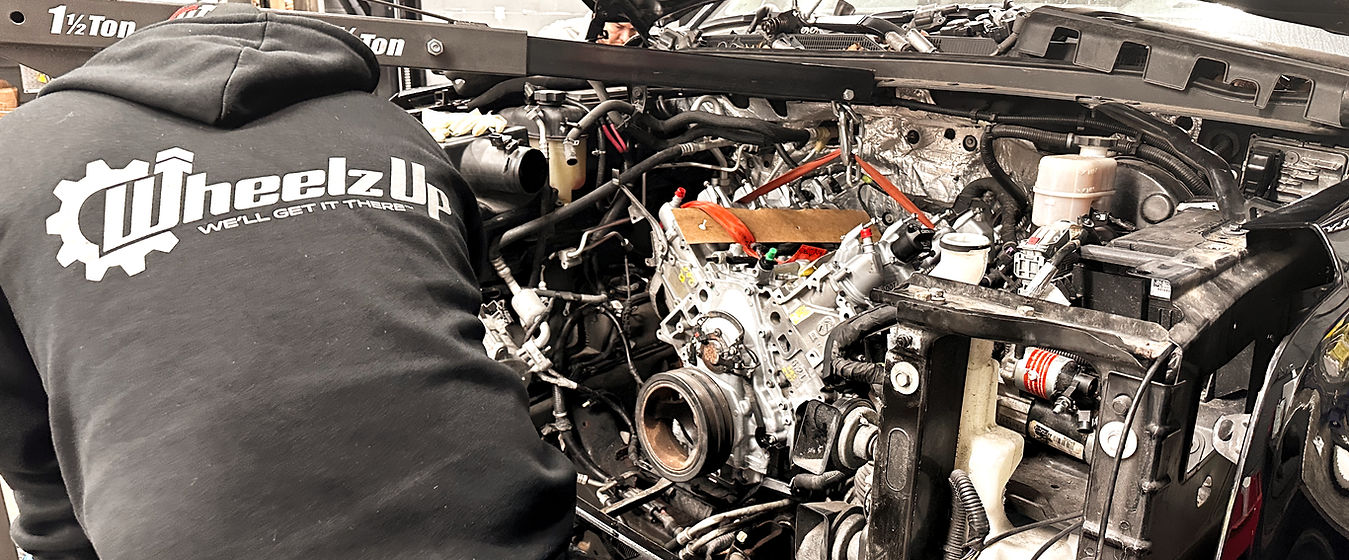Fleet management, as they are called, is a balance of a number of expenses, including the regular maintenance of the GPS tracking system, among others. Regardless of the size of your fleet – from a handful of vehicles to a large company, managing expenses is essential. Effective fleet vehicle pricing, paired with reliable garage auto repair services, can significantly reduce the financial burdens.
Vehicle Depreciation: A Silent Expense
Depreciation takes the largest portion of the total cost of managing fleets, with a percentage average of 53%. The value degradation of each car in the fleet is within the range of 15-20 percent of its value per year. Failure to take this into consideration results in an underestimation of total expenditures. Through proper scheduling of when to replace the vehicles, the operators can greatly reduce depreciation costs. Partnering with reliable auto repair places ensures that vehicles remain operational for a longer time, thus postponing the need for replacements.
The Unpredictable Nature of Fuel Costs
Fuel constitutes about fifteen percent of a fleet’s budget or roughly the second largest expense category. Such costs vary with the price of fuel, vehicles, and the utilization of fuel on diverse vehicles. This cost can be minimized through effective route management and the acquisition of efficient hybrid or even electricity-run cars. Sophisticated tracking systems also enable better use of fuel; expenses not required are also minimized.
Maintenance: The Backbone of Fleet Operations
Maintenance helps the vehicle to run well and ensures that it does not break down quickly. Small services, like an oil change, a brake check, or a tire rotation, help to avoid more significant problems in the future. However, other expenses not previously thought of, such as catalytic converter replacements or some engine part failures, are unpredictable expenses. The above challenges can be resolved by carefully choosing credible auto repair places.
Brake Repairs: Common Yet Crucial
Problems associated with brakes are some of the most common complaints received by fleet managers. Neglecting these services can lead to reduced stopping power, increased repair costs, and safety risks. Technicians who have several years of experience working in garage auto repair shops ensure thorough brake maintenance.
- Changing worn-out brake pads and rotors.
- Inspecting brake fluid levels and quality.
- Conducting valve face measurement and caliper/brake line replacement if needed.
The Role of Advanced Tracking Systems
GPS and Telematics are useful modern tracking tools that are used in managing fleets. These tools help monitor vehicle performance, optimize routes, and reduce fuel consumption. While these systems may take some investment initially, then they prove to be of much value in the long run. They also offer up-to-date information that is useful for elucidating the causes of operational deficiencies.
Variable Costs in Fleet Management
The variable cost relates closely to the level of fleet operations. This includes fuel, repairs, and other costs arising from accidental occurrences. For example, one can get a windscreen chip from small grains of stones on the road, and this is very risky. ASE-certified mechanics have detailed and superior knowledge of automobiles and are well-equipped to detect or resolve any problem. For expenditure control, it is crucial to invest more in preventive maintenance and pick reputable garage auto repair services.
Importance of Quality Spare Parts
Cheap, aftermarket parts may seem like a good deal but often fail sooner, leading to additional expenses. On the other hand, OEM (Original Equipment Manufacturer) parts offer reliability and durability. Trusted garage auto repair shops typically use high-quality parts, ensuring long-term savings for fleet operators.
Seasonal Challenges in Fleet Management
Managing a fleet during Winter presents its own set of problems. This weather adversely impacts tires, engines, and batteries, consequently resulting in frequent service calls. Preparing vehicles for winter, such as switching to winter tires and checking antifreeze levels, minimizes the risk of breakdowns. Reliable garage auto repair services can handle any problems caused due to weather. They keep the fleets operational during harsh weather conditions.
Managing Catalytic Converters and Additional Services
Catalytic converters reduce harmful emissions, contributing to a safer environment. Regular inspections help detect damage early, while timely replacements maintain emissions compliance. Fleet operators who prioritize catalytic converter upkeep enjoy improved vehicle efficiency and environmental benefits.
Most auto repair companies also sell accessories and products to improve the performance of the cars that are being repaired. These include tire replacements, windshield fluid top-ups, and engine oil refills. Some garages even stock gadgets and tools to optimize fleet vehicle pricing.
Conclusion
Fleet management costs will continue to evolve with advancements in technology and changes in market conditions. By understanding the breakdown of costs and addressing each component strategically, fleet operators can maintain a balance between efficiency and budget.
Thus, successful fleet management depends on addressing both fixed and variable costs. From depreciation and fuel expenses to routine maintenance and seasonal adjustments, every aspect plays a role in overall efficiency. Choosing reliable garage auto repair services and adopting modern technologies ensures fleets remain operational and cost-effective. Fleet operators who take these factors into account can navigate challenges confidently and achieve long-term success.
